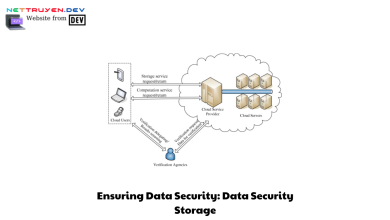The Importance of Informatica Data Privacy Management: A Comprehensive Guide

In today’s digital age, data privacy management has become an essential aspect of any organization that handles sensitive information. With the ever-increasing number of data breaches and cyber attacks, it’s imperative to have a robust data privacy management system in place to protect your business and your customers.
But what exactly is informatica data privacy management, and why is it so crucial? In this comprehensive guide, we’ll explore the definition of informatica data privacy management, its importance in the current digital landscape, and the key components that make up a comprehensive data privacy management system. From there, we’ll dive into the laws and regulations surrounding data privacy, best practices for implementation, and challenges and solutions for maintaining an effective data privacy management system.
So, whether you’re a business owner, IT professional, or simply interested in learning more about data privacy management, this guide is for you. Let’s get started!
Laws and Regulations for Informatica Data Privacy Management

As companies continue to collect and manage vast amounts of data, governments around the world have implemented various data privacy laws and regulations to protect individuals’ personal information. These laws and regulations provide guidelines on how data is collected, processed, stored, and shared.
Overview of Global Data Privacy Laws and Regulations
There are several global data privacy laws and regulations that organizations must abide by, including the General Data Protection Regulation (GDPR) in the European Union, the California Consumer Privacy Act (CCPA) in the United States, and the Personal Information Protection and Electronic Documents Act (PIPEDA) in Canada.
Compliance Requirements for Informatica Data Privacy Management
Compliance with data privacy laws and regulations is essential for any organization that collects, processes, or stores personal data. Informatica data privacy management solutions can help organizations comply with these regulations by providing tools for data discovery, classification, and protection.
Consequences of Non-Compliance
Non-compliance with data privacy laws and regulations can result in severe consequences for organizations, including fines, legal action, and reputational damage. For example, under the GDPR, organizations can face fines of up to €20 million or 4% of their global annual revenue, whichever is higher, for non-compliance. Therefore, it’s crucial to ensure that your organization is compliant with all relevant data privacy laws and regulations to avoid these consequences.
Challenges and Solutions for Informatica Data Privacy Management

As with any complex system, implementing and maintaining an informatica data privacy management system can present numerous challenges. However, with the right strategies and solutions in place, these challenges can be effectively addressed.
Common challenges in implementing and maintaining informatica data privacy management
One of the most common challenges in implementing informatica data privacy management is the lack of resources, including time, personnel, and budget. Many organizations struggle to allocate sufficient resources to develop and maintain a comprehensive data privacy management system. Additionally, keeping up with constantly evolving data privacy laws and regulations can be a daunting task, particularly for smaller businesses with limited resources.
Another common challenge is the lack of awareness and understanding of data privacy among employees. Without proper training and education, employees may unknowingly engage in activities that compromise data privacy, such as sharing sensitive information via unsecured channels or failing to properly dispose of confidential documents.
Solutions for addressing these challenges
To address the challenges of implementing and maintaining an informatica data privacy management system, there are several strategies and solutions that organizations can implement.
First and foremost, it’s essential to allocate sufficient resources to developing and maintaining a comprehensive data privacy management system. This may involve hiring additional personnel, investing in training and education programs, or implementing new technologies to streamline data privacy management processes.
Additionally, staying up-to-date with the latest data privacy laws and regulations is crucial. This may involve partnering with legal experts or subscribing to industry publications to stay informed of any changes or updates.
Finally, providing comprehensive training and education programs for employees is essential to ensuring that they understand the importance of data privacy and are equipped with the knowledge and tools necessary to maintain it. Regular training sessions, ongoing communication, and reminders can all help reinforce the importance of data privacy and encourage employees to prioritize it in their daily activities.
Conclusion
In conclusion, informatica data privacy management is a critical component of any organization’s security framework. With the increasing number of data breaches and cyber attacks, it’s essential to have a comprehensive data privacy management system in place to protect your business and your customers’ sensitive information.
In this guide, we’ve explored the definition of informatica data privacy management and its importance in today’s digital age. We’ve discussed the key components of a data privacy management system, the laws and regulations surrounding data privacy, and the best practices for implementation and maintenance.
By following these best practices and implementing a robust data privacy management system, you can better protect your organization from security breaches and ensure the safety of your customers’ sensitive information. So, take the necessary steps today to prioritize data privacy management and safeguard your business for the future.
Conclusion: So above is the The Importance of Informatica Data Privacy Management: A Comprehensive Guide article. Hopefully with this article you can help you in life, always follow and read our good articles on the website: nettruyen.dev




